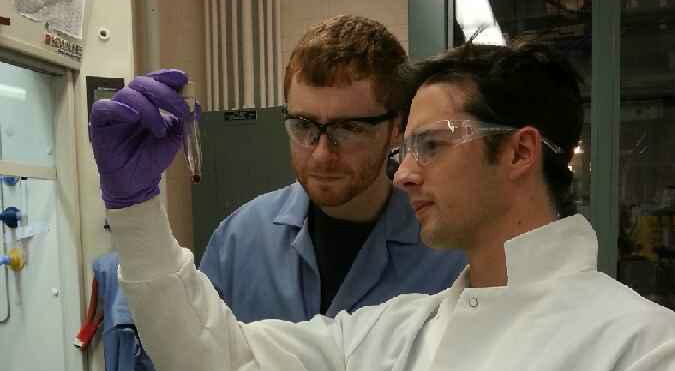During my time at Northwestern I’ve been lucky enough to live with the same person all four years. Pascual O’Dogherty and I were randomly matched as roommates our freshman year and we have chosen to live together ever since. You could say the roommate match went pretty well for us.
Pascual is from Mexico City and has interests that seem very different from my own. I study Social Policy and my classes are more social science based; he is in the Integrated Science Program and is also studying Materials Science Engineering. (As a brief aside, the Integrated Science Program is an honors program that immerses students in mathematics and various sciences.) The two of us are able to connect because we both are interested in what the other does. I’ve grown to trust Pascual and go to him for advice if I need it. Also, we both like watching Stephen Colbert and Jon Stewart, so that helps. Despite our differences, I still am always interested to hear what he is working on, and recently he’s been involved in some research that I find exciting.
Starting this summer, Pascual began working in the Stupp Laboratory with Professor Samuel I. Stupp. Professor Stupp is in the top 1% of cited researchers in his field, and actually received his Ph.D. at Northwestern. He is very involved in BioNanotechnology and in Nanomedicine, and his lab focuses on self-assembling gels, improved energy materials, and regenerative medicine.
Pascual researches hydrogen fuel production as an efficient and clean alternative fuel source. He spends his time mixing a gel with catalysts to take hydrogen out of hydrogen sources like ascorbic acids. Currently hydrogen extraction is done with palladium, which is rather expensive; Pascual instead uses molybdenum because it is cheaper. Ideally this research will help us switch to cheaper and cleaner energy sources.
Pascual actually had relatively easy time securing his spot in the lab. He read about the lab’s research and thought it sounded interesting. He then reached out to a friend in his Materials Science program who put him in contact with a grad student in the lab. Pascual then was set up to work with researcher Roman Kazantsev, who Pascual calls his “boss, mentor, and friend.” The lab must be enjoyable and engaging, because Pascual goes in almost every day. Pascual also is proud to have helped out with a project on hydrogen production that is published in the Journal of Nature and Chemistry.
My Social Policy work is very different from Pascual’s lab research. That being said, I very much appreciate having friends with such diverse interests who are able to get involved in cool opportunities like this one.
–Jason Smith
